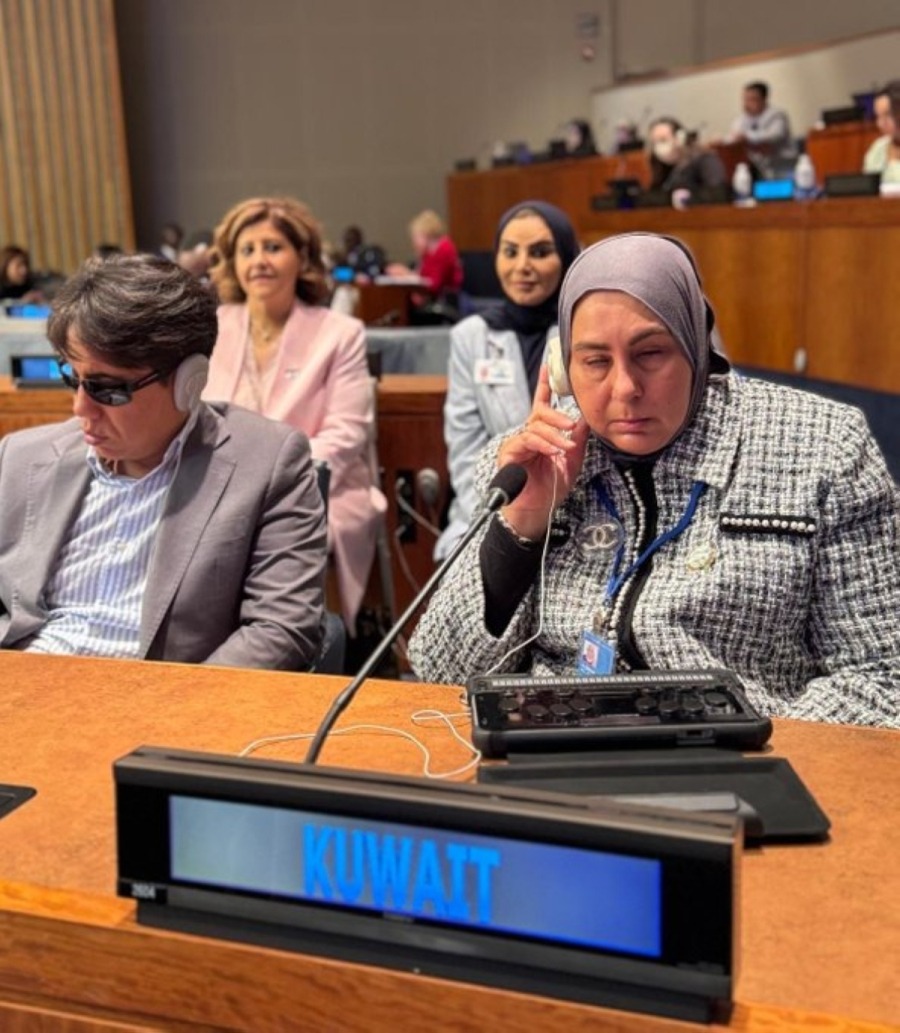AI-driven solutions reduce barriers to employment, mobility for people with visual impairments

At the 18th session of the Conference of States Parties to the Convention on the Rights of Persons with Disabilities, held at the United Nations Headquarters in New York, Kuwaiti lawyer and disability rights advocate Al-Omani delivered the official speech on behalf of the State of Kuwait.
She participated in the high-level roundtable discussion titled “Leaving No One Behind: Using Artificial Intelligence as a Tool to Support Inclusion and Enhance Participation of Persons with Disabilities.”
In her remarks, Al-Omani highlighted that the integration of artificial intelligence (AI) technologies into daily life has ushered in a “qualitative shift” in the empowerment of individuals with visual disabilities. She emphasized that AI enables greater self-reliance and active participation in various domains—from education and employment to daily living and social engagement.
Al-Omani acknowledged that while the AI era brings with it legitimate concerns—such as the risks of misuse, potential bias, and threats to data privacy—these are balanced by the tremendous opportunities AI offers to promote independence and inclusion.
She elaborated on several practical applications of AI that have transformed the lives of people with visual impairments:
- Text-to-speech technologies that convert written content into audible formats.
- Voice assistants like Amazon’s Alexa and Google Assistant, which allow users to execute commands via voice to send messages, make phone calls, set reminders, or access information.
- Screen-reading software that enables visually impaired individuals to navigate websites, conduct research, and engage in professional development.
- Braille enhancement tools powered by AI, facilitating literacy and communication.
- AI-guided navigation applications that assist users in public spaces using sound cues and vibration alerts, helping them identify obstacles and move independently.
- Microsoft’s Seeing AI app, which analyzes images and uses voice narration to identify people, text, objects, and even facial expressions.
Al-Omani also pointed to the impact of AI in promoting remote work and telecommuting, which reduces the need for transportation and broadens access to employment opportunities for people with disabilities.
However, she stressed that the advancement of these technologies must be accompanied by inclusive and ethical design principles. She called for AI systems that:
- Support multiple languages and cultural contexts.
- Safeguard user privacy and data rights, especially in tools that analyze images or voices.
- Provide technical support and user training to build digital literacy among people with disabilities.
- Are developed in partnership with users, ensuring that people with disabilities actively participate in the design and evaluation of AI tools tailored to their needs.
To conclude her intervention, Al-Omani shared her personal journey as a pioneer: the first blind female lawyer to receive a law license in Kuwait and the Middle East, and the first director of the Special Needs Center at the Kuwait Lawyers Association.
Her story served as a powerful testament to the role of inclusive technologies and the importance of accessible innovation in enabling people with disabilities to reach their full potential.
Al-Omani’s participation underscored Kuwait’s commitment to harnessing technology for inclusive development and aligned with the broader goals of the Sustainable Development Agenda, particularly the principle of “leaving no one behind.”



























